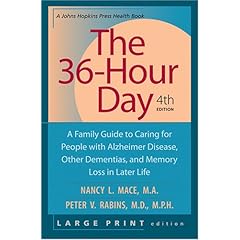 Medicaid or private insurance occasionally will pay for the care, which can range in price from $31 a day to $130 a day.
Medicaid or private insurance occasionally will pay for the care, which can range in price from $31 a day to $130 a day.Adult day care gives caregivers a break
When Dick Lundgren realized that caring for his wife was taking a toll on his own health, he turned to adult day care.
Lundgren, who lives south of Seattle, found a program that catered to patients with Alzheimer’s disease and made arrangements for his wife, Dorothee, to go there two days a week.
The break was good for both of them, said Lundgren, whose wife was diagnosed with the progressive brain disease seven years ago. He recently placed her in a group home that provides round-the-clock care to six residents.
“I firmly believe, looking back, that (day care) gave me a chance to keep my wife home a year longer,” the 61-year-old said.
Finding the right adult day care center can offer respite to caregivers while offering their charges a chance to socialize and take part in supervised activities. Facilities vary from those that focus on medical care to those that are mostly recreational, offering games, gardening or crafts.
There are about 3,500 providers across the country, according to industry experts, who say the number grows annually. In recent years, churches, nursing homes and national franchises have opened day care centers.
Finding the right center
"Medicaid or private insurance occasionally will pay for the care, which can range in price from $31 a day to $130 a day. The average cost is about $61 a day, according to the American Association of Homes and Services for the Aging, in Washington. Many facilities offer a sliding scale based on income.
Deciding what works best for your family requires doing some homework, said Elinor Ginzler of the AARP, the senior advocacy group.
# First, decide whether the older person needs a health-based program staffed with medical professionals. Even a more recreational center should have a nurse or doctor on staff. Patients with Alzheimer’s, Parkinson’s or other chronic health conditions probably require a center that focuses on care.
# The AARP or local Area Agency on Aging should have a list of providers. Only about 6 percent of adult day-care centers are accredited, but most are inspected by state agencies, said Peter Notarstefano of the American Association of Homes and Services for the Aging. Practices and policies vary by state, but the inspection records should be available for review, Ginzler said.
# Visit the facility to meet the staff and ask about its training policies, experts advise. Watch the interactions between staff and clients, the quality of the programs, and the cleanliness of eating areas and bathrooms.
“See how engaged people are,” said Donna Schempp, a program director at the Family Caregiver Alliance in San Francisco.
“Are they sitting around in wheelchairs and being ignored or are people trying to engage them in different kinds of activities?”
The workers should seem interested in their elderly charges and treat them kindly, said Lundgren, a board member of Washington Elder Care, a group working to create a local day health program geared to dementia patients.
“It’s always the people and their attitude and their commitment to their work,” he said.
# Ask to see a schedule of activities. If possible, come back for an unscheduled visit during an activity your loved one might enjoy, and see how it’s run.
Mealtime also is a good time to visit and see how workers treat clients, said Notarstefano.
# Look for a center that satisfies the caregiver’s needs as well as the loved one. Most centers serve lunch, but many provide other services, including transportation or medical screenings. Some may offer bathing services and transportation to doctor’s appointments.
# Find out whether the center takes field trips, uses volunteers or invites in children for special programs, said Ginzler.
“Adult day centers should encourage and promote opportunities to engage in the world around them,” she said. “That should include bringing the world in and going out into the world.”
# Find out whether the staff will help participants use the restroom, and how they handle episodes of incontinence, suggested Nora Gibson, executive director of ElderHealth Northwest, in Seattle.
“Many older adults need assistance or reminders to go to the bathroom,” she said. “You don’t want anyone to have the humiliation of going home in wet pants or a wet dress.”
# Find out what type of training the center requires for employees and whether it provides ongoing training. Centers should continue to train staff for the duration of their employment, Ginzler said.
# Many centers will help families introduce the idea of day care to their loved ones. Directors often suggest stressing the opportunities for socialization and organized activities. Many will invite the potential participant in for a meal or activity. Others encourage seniors to try out the facility for a week or two.

The 36-Hour Day: A Family Guide to Caring for People with Alzheimer Disease and Memory Loss in Later Life